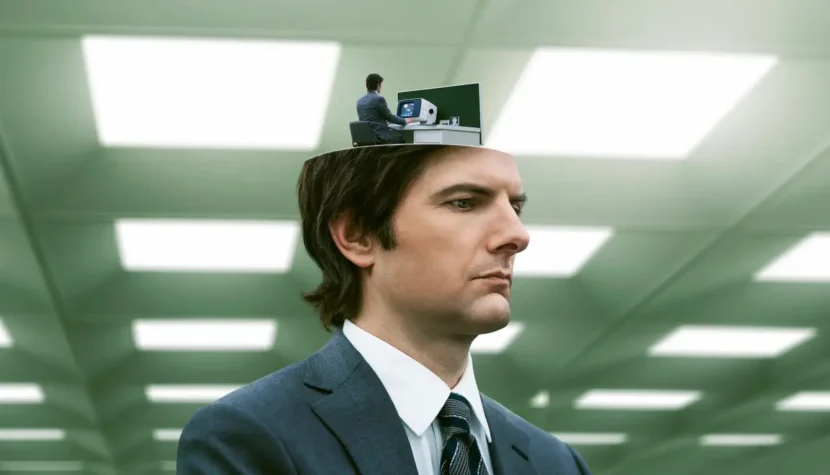SEVERANCE: Give up Your Life, and You Shall Know Happiness

Severance consists of all the elements necessary to create a timeless television hit. The world presented is populated with interesting characters, the set design is wonderfully paranoid, the entire show is enveloped in an impenetrable aura of mystery, and perhaps most importantly: the nine-episode production deals with issues that are highly relevant to us.

After all, who has never dreamed of switching off from everyday life for a moment and finally feeling the pleasant lightness of being? We say I do something to take my mind off things, so what do we want to take a break from, if not ourselves; what do we want to detach from, if not from who we currently are? The turn toward nostalgia in pop culture is precisely founded on an increasingly pronounced universal need to escape the present and return to an innocent, idealized, and therefore false past. The desire to escape from the excessive demands of employers, including the so-called hustle culture, is also shared by the younger generations now entering the labor market. The Great Resignation, the Chinese tang ping, the Reddit channel r/antiwork—more and more signals are coming to light indicating an impending massive upheaval related to wage labor, one that may upend a societal system that has been laboriously built over several hundred years.

The creators of Severance have shown that there is a miraculous remedy for the above ailments. The Lumon corporation has proposed a clever solution—just implant a chip in the employee’s head, and it will separate their work life from their everyday life. The concept is as follows: during working hours, a person becomes an individual who does not remember who they are on the outside, and after work, they do not remember what they did at work or what their job even involves. In this devilishly smart way, it becomes possible to increase work efficiency, avoid burnout among employees, and even prevent potential lawsuits, should it turn out that the corporation is engaged in less-than-legal business.

This is the world in which Mark (Adam Scott) lives, a traumatized man who decides to split his consciousness in two just to escape, for a few hours, the pain of losing his beloved wife. It is mainly from his perspective that we follow the events taking place within the corporation and in the outside world. The screenwriters are sparing with information about Mark’s coworkers, who, like him, are engaged in macrodata refinement—whatever that may mean (the characters themselves are not entirely sure what their job entails)—gradually revealing the principles governing this closed working environment.

Severance is not a show that can be summed up in a few words, and that is not a convenient excuse for the purpose of this review, but simply a statement of fact. Regardless of which storyline one chooses to examine, each opens an extraordinary space for discussion, thanks to a script rich in detail and open to interpretation. Take, for example, the rules governing Lumon—characters do not know the nature of their work, nor do they know people from other departments. For any infractions, they are sent to the break room (a wonderful play on words), where they must confess their sins, even though they do not fully understand them. They do not even really know where all the corridors lead. What is even stranger, the company has developed something akin to a secular mythology—holy books chronicling the founder’s origins have been written, a museum in his honor has been established, and paintings are being created to commemorate the most important moments in the life of the corporation.

What is most beautiful in Severance is precisely the combination of reflection on the material aspect of the company’s operations—focused, after all, on ever-growing profits—with the mystical aura of the place. I get the impression that the creators are showing viewers a cosmogony straight from the origins of every great philosophical or religious system, as if we are witnessing the birth of a new world rooted in new axioms, albeit dressed in old robes.

Severance is a complete series with an excellent cast (Turturro, Arquette, and Walken), a meticulously planned plot, and memorable scenes. This is what modern science fiction series should look like—minimalism of form and maximum content make the Apple TV+ production already worthy of inclusion among the best series of 2022.
Read about Season 2 of Severance here.


